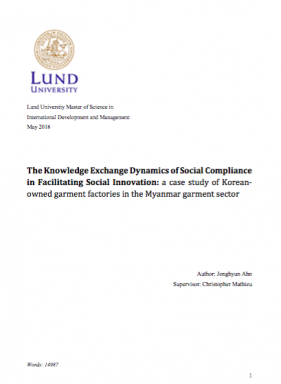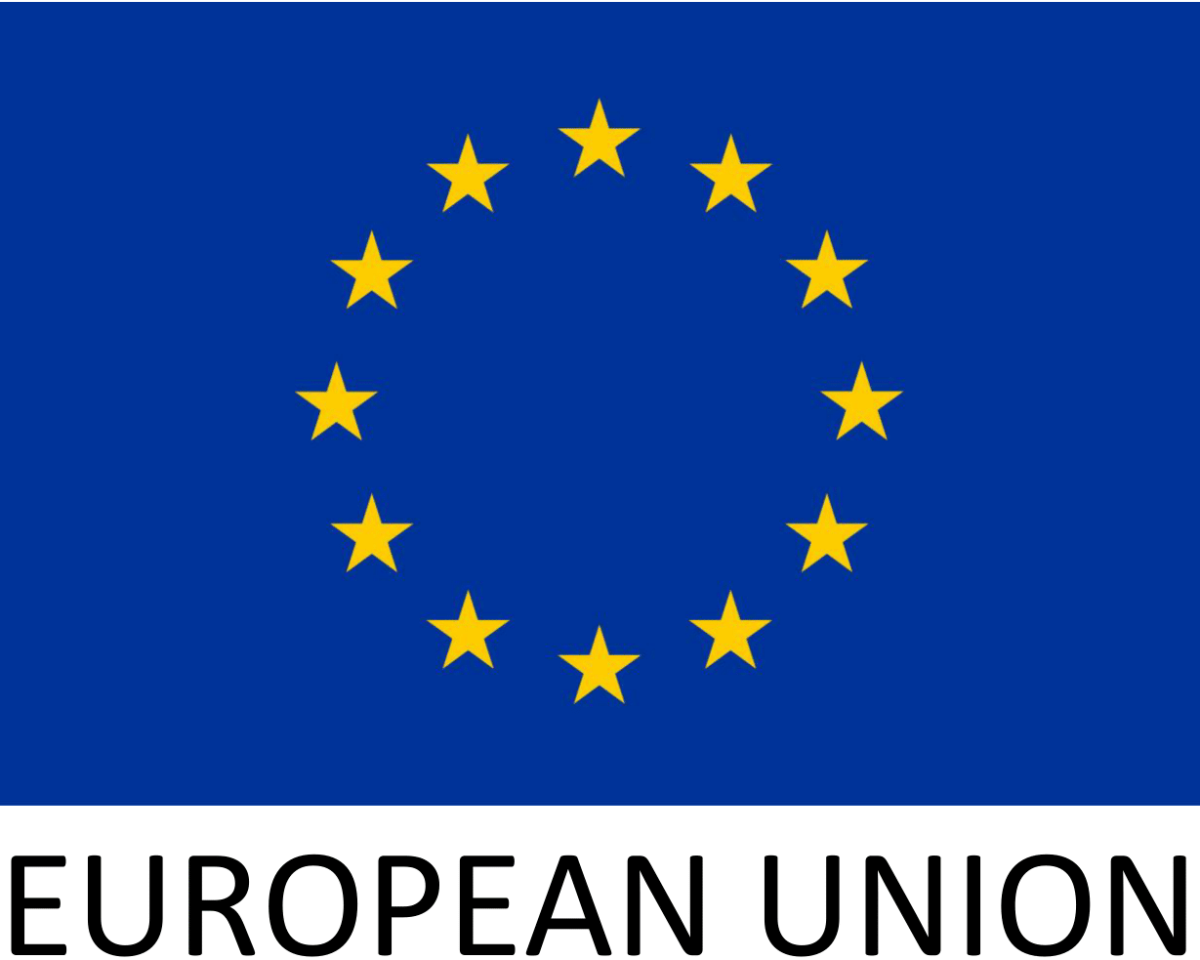
This is an academic document produced by Korean researcher Jonghyun Ahn while completing his studies at Lund University in Sweden. The author spent several months in 2017 working closely with SMART Myanmar, conducting research predominantly with a network of 63 Korean-owned garment factories in Yangon. This master's thesis is a summary of his findings.
The thesis investigates a network of garment firms in Myanmar to understand the mechanisms of knowledge exchange and how firms ascertain knowledge of social compliance. This thesis considers that the adoption of international social standards is linked to the creation of social innovation in regard to employee well-being. Social network analysis was conducted, and a mixed method approach was used in which both qualitative and quantitative data was considered. The main research questions are to understand the mechanisms and interplay of knowledge exchange of social compliance in a network which factories obtain knowledge and the influential factors in knowledge exchange. This thesis considers pertinent literature such as the types of knowledge and the different dimensions of proximity. The findings suggest that there is a hegemonic structure in which knowledge exchange is unequally diffused among actors; which has an adverse impact on factories in the periphery of the network, tacit knowledge can facilitate knowledge embeddedness, the exchange of codified knowledge is limited by geographical proximity and finally closeness in institutional proximity can augment instance of distance in other proximities which can negate negative community lock-in and spatial limits.





